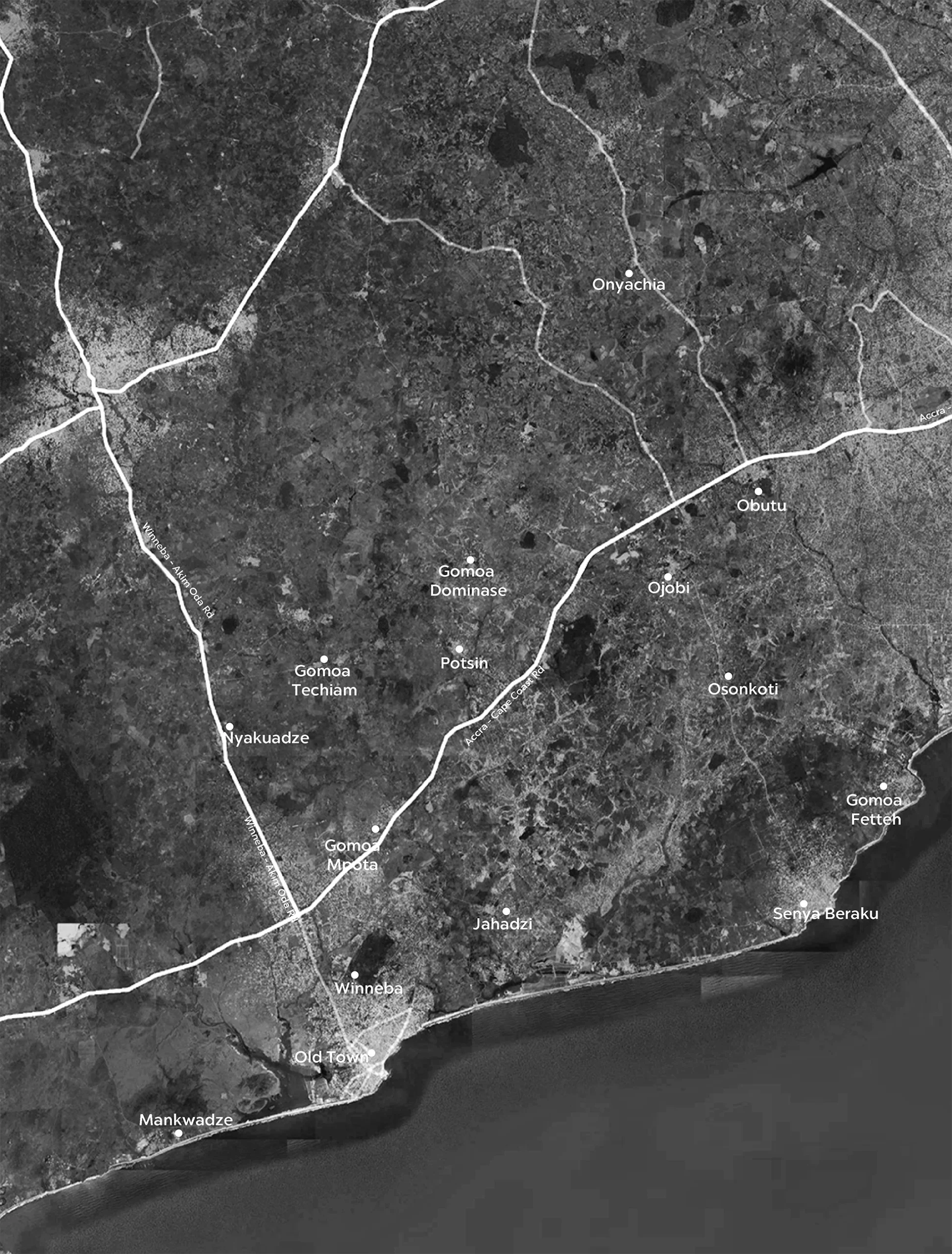In the heart of Ghana’s Central Region, a visionary city is being orchestrated, encompassing a vast land mass of approximately 50,000 acres. RUBAN and ACID are currently designing this urban reality and it will be unveiled in in 2025. This city sets itself apart by celebrating and integrating the rich culture of the Ghanaian people who currently inhabit the site. Instead of displacing the indigenous demographic, the city is designed to build around them, embracing their culture, norms, and conventions. The goal is to harness their contributions and make them integral to the city’s development without friction or loss of identity.
The proposed city aims to create a socio-economic framework that caters to residents of all income levels. With a sustainable and inclusive approach, it envisions housing options for low-, middle-, and high-income individuals. This ensures that every member of the community can access essential amenities and enjoy a high quality of life. By promoting social cohesion and breaking down socioeconomic barriers, the city fosters a sense of unity and shared prosperity.
A key aspect of the city’s design is its high walkability. Pedestrian-friendly streets, dedicated cycling paths, and green spaces are interwoven throughout the urban landscape. This encourages residents to embrace active lifestyles and reduces reliance on cars, minimizing carbon emissions and promoting a healthier environment. Moreover, the city is designed to generate a significant portion of its energy through sustainable sources, such as solar and wind power. By harnessing renewable energy, the city reduces its ecological impact and moves towards self-sufficiency.
Positioning itself as a city of Africa’s future, this visionary project embodies the aspirations and potential of the continent. By incorporating cutting-edge technologies, fostering innovation, and attracting global investments, it becomes a catalyst for economic growth and development. The city aims to be a hub for research, entrepreneurship, and technological advancement, nurturing local talents and empowering the community. It recognizes Africa’s urbanization trend and embraces the responsibility of leading the way in sustainable urban development.
At the heart of the city’s urban design lies a commitment to circular economy, sustainability, and security. The circular economy principles ensure efficient resource management, waste reduction, and recycling. The city promotes sustainable practices such as green building initiatives, water conservation, and urban farming. These initiatives not only minimize environmental impact but also create opportunities for economic growth and job creation.
The city places great importance on security and safety. It invests in modern security systems, including advanced surveillance, emergency response networks, and community policing programs. By creating well-planned public spaces, implementing adequate lighting, and fostering community engagement, the city ensures a secure and welcoming environment for all residents.
In conclusion, the proposed city in Cape Coast, Ghana represents a harmonious blend of sustainability, inclusivity, and cultural preservation. By integrating the existing Ghanaian communities, the city aims to create a vibrant and prosperous future while staying true to their culture, norms, and conventions. With a focus on sustainability, circular economy, and security, the city aspires to become a model for future African cities. As Africa’s urbanization continues to surge, this city positions itself as a beacon of progress, showcasing how sustainable and culturally enriched urban environments can shape the future of the continent. More specific information will be released over time.
